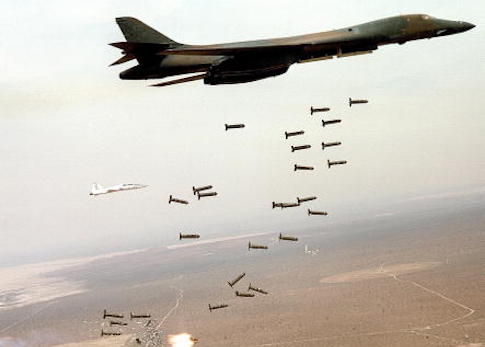The Trump administration "set a new record" for dropping munitions on Taliban drug facilities in Afghanistan, according to newly declassified information showing a significant increase in American operations in the war-torn country since the White House announced a new policy for the region.
The U.S. has significantly increased the number of airstrikes conducted on Taliban drug operations during the first part of 2018, marking the largest number of munitions expenditures over this period in the country since reporting began in 2013, according to a supplemental report provided by the Special Inspector General for Afghanistan Reconstruction, or SIGAR.
The Trump administration "has increased the number of airstrikes: the United States released 378 munitions in January, 469 in February, and 339 in March 2018 during 215 missions," according to information released by the Pentagon. "The total of 1,186 munitions released in the first quarter of 2018 is a record for this period since reporting began in 2013, and is over two and a half times the amount for the first quarter of 2017."
The information originally had been classified as part of an effort to obscure detailed numbers of U.S. operations to cripple the Taliban's financial networks. Its release comes as Secretary of State Mike Pompeo made a surprise trip to Afghanistan on Monday to meet with the country's leaders.
The administration has significantly expanded airstrikes in the country, according to SIGAR.
"U.S. air assets such as B-52s, B-ls, F-16s, F-18s, A-10s, and other aircraft—along with Afghan Air Force (AAF) pilots operating under Afghan authorities using Afghan air assets—aim to disrupt and deny the Taliban the ability to generate revenue as well as destroy their investments in personnel, weapons, equipment, and explosives," the supplemental report noted.
While these operations have cost the Taliban nearly $20 million in revenue, SIGAR noted that the drug labs and facilities being destroyed by the U.S. "are inexpensive and easy to replace."
